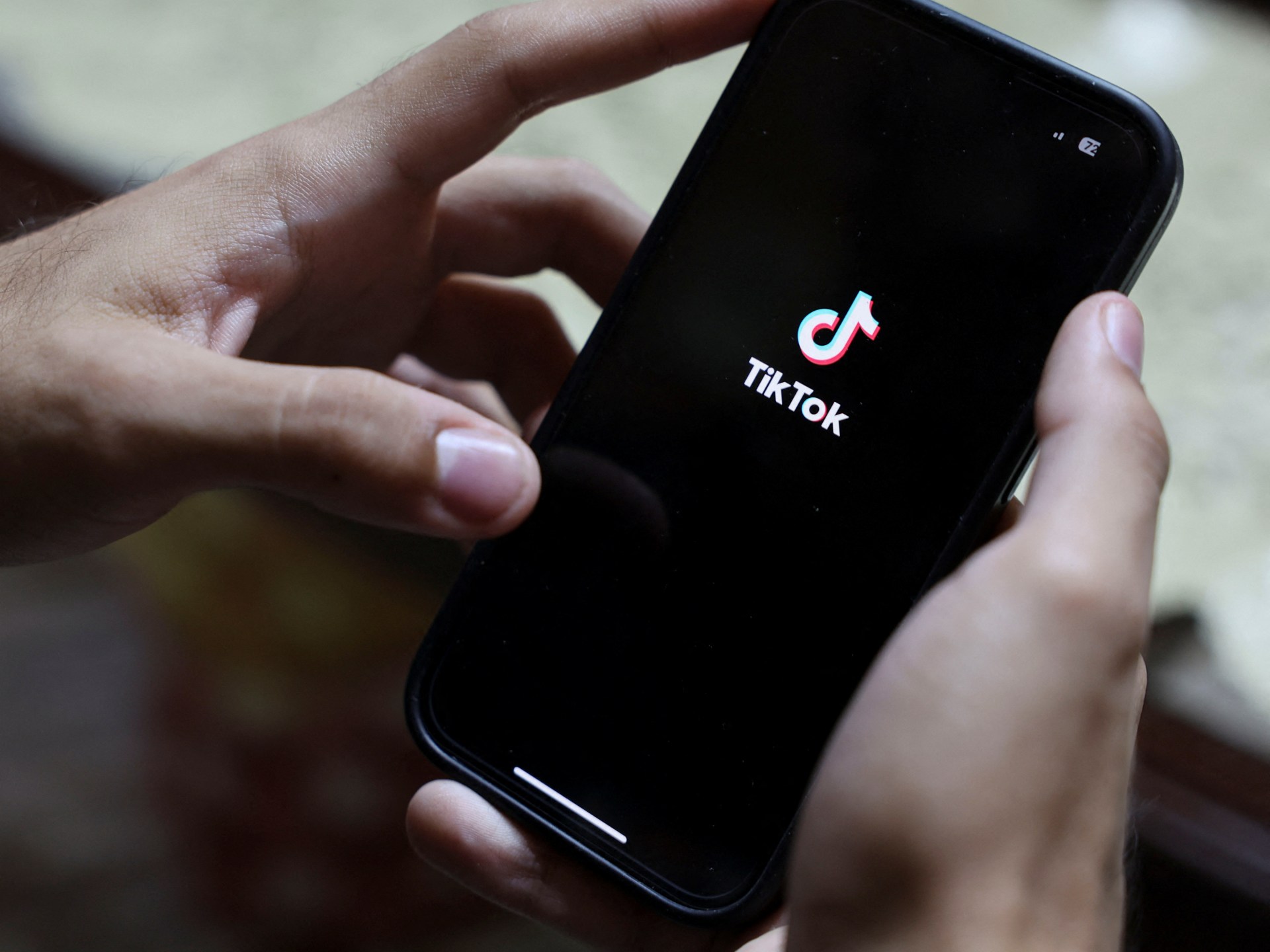The United States and China have reached a framework agreement to transfer TikTok’s ownership to US control.
Officials from both countries made the announcement on Monday.
Recommended Stories
list of 4 itemsend of list
The short-form video app was set to be banned in the US by Wednesday if its owner ByteDance did not agree to sell the company to a US-based operation or if the US did not extend a pause of the ban, which the White House has already done three times, most recently in June.
US President Donald Trump applauded the deal, which will be confirmed when he discusses it with his Chinese counterpart President Xi Jinping on Friday.
“A deal was also reached on a “certain” company that young people in our Country very much wanted to save,” Trump wrote on his social media platform Truth Social on Monday.
“The relationship remains a very strong one!!!”
The White House declined to outline the terms of the deal, which was negotiated during trade talks between the two countries in Madrid. The two-day meeting, which wrapped up on Monday, was the latest in a slew of negotiations that began in May.
“We’re not going to talk about the commercial terms of the deal. It’s between two private parties, but the commercial terms have been agreed upon,” US Treasury Secretary Scott Bessent told reporters.
Bessent and US Trade Representative Jamieson Greer, who was also part of the trade delegation in Madrid, said China wanted concessions on trade and technology in exchange for agreeing to divest from the popular social media app.
“Our Chinese counterparts have come with a very aggressive ask,” Bessent said, adding, “We are not willing to sacrifice national security for a social media app.”
“TikTok’s divestment agreement not only keeps the app running in the US, but is also expected to help de-escalate a tense trade standoff and lay groundwork for further trade talks between the US and China,” Maria Pechurina, director of international trade at Peacock Tariff Consulting, told Al Jazeera. “Both US and Chinese delegations explicitly linked the fate of TikTok to progress on tariff reductions and related trade concessions during their conversations in Madrid.”
The deal comes despite the US pushing other nations to impose tariffs on China over purchases of Russian oil, which Bessent said was discussed briefly with the US’s Chinese counterparts.
Experts warn to be wary of the deal being set until Xi and Trump speak on Friday.
“It’s important to note that the Chinese often see the signing of a deal as the beginning, and not the end, of any negotiations. The devil would lie in the details behind the optics. Also expect much haggling on important details that may take years,” Usha Hayley, a professor of international business at Wichita State University who specialises in Chinese industry, told Al Jazeera.
“The deal, when reached, would reflect the convergence of technology, national security, and geopolitics,” said Hayley. “TikTok sits at the centre of US concerns about data access, influence over public discourse, and Beijing’s reach into global tech. Washington is stating that the US views digital platforms as strategic assets, not private businesses.”
TikTok did not respond to Al Jazeera’s request for comment.
The looming ban
Trump proposed banning TikTok during his first term as US president, signing two executive orders in August 2020 that were aimed at restricting the app.
In April 2024, under then-President Joe Biden, the White House signed a law formally banning TikTok unless it sold its US operations. The ban was supposed to take effect on January 19, the last day of the Biden administration. Biden said he would not enforce the ban and said that he would leave that decision to the next administration.
Two days before the January deadline, on January 17, the Supreme Court stepped in to weigh in on TikTok’s challenge to the law and upheld the law. The app went dark briefly before the ban was paused during the early days of Trump’s subsequent presidency.
The pause was initially for 90 days and was later extended multiple times throughout the year.
The cultural importance to Trump
TikTok’s cultural relevance has grown significantly in recent years, serving both as a tool for organising and activism, and as a platform to reach the public, particularly young voters. In April 2024, the pro-Trump videos on TikTok were nearly double those supporting Biden, who was then the Democratic nominee, the New York Times reported, citing TikTok’s internal data.
Trump’s broader use of newer media was widely cited as a factor in his 2024 election victory. His campaign regularly engaged with right-leaning podcasts and influencers — such as Joe Rogan and Theo Von — to reach conservative audiences. It also targeted disillusioned men, who were drawn to influencers promoting traditional notions of masculinity, often conflated with conservative viewpoints.
A Pew Research Center study from November found that news influencers — defined as those who discuss “current events and civic issues” and have at least 100,000 followers across any social media platform – are more likely to lean conservative. A separate report from Pew in February found that news influencers posted more content supporting Trump than former Vice President Kamala Harris, Trump’s 2024 election opponent: 28 percent for Trump versus 24 percent for Harris.
TikTok’s role in spreading far-right narratives is not limited to US politics. The platform has reportedly influenced German state elections, contributing to the rise of far-right leaders, and has similarly affected far-right candidates in Poland, Sweden, and France.
